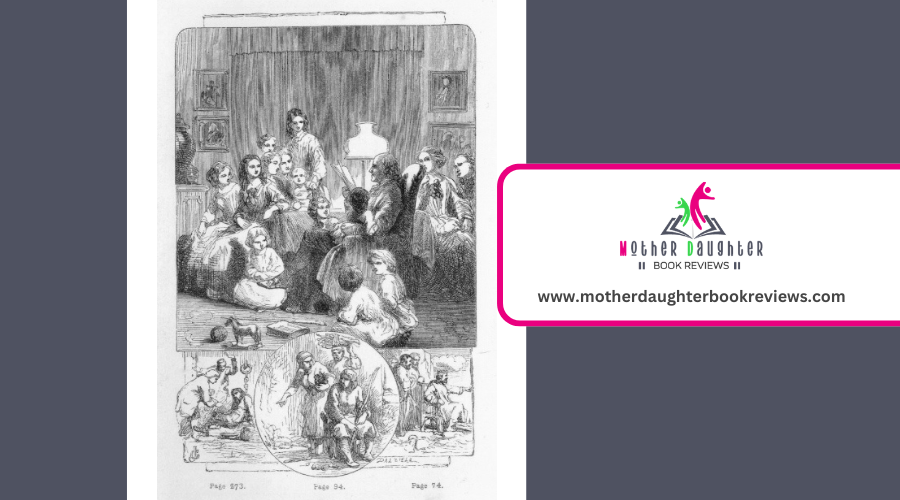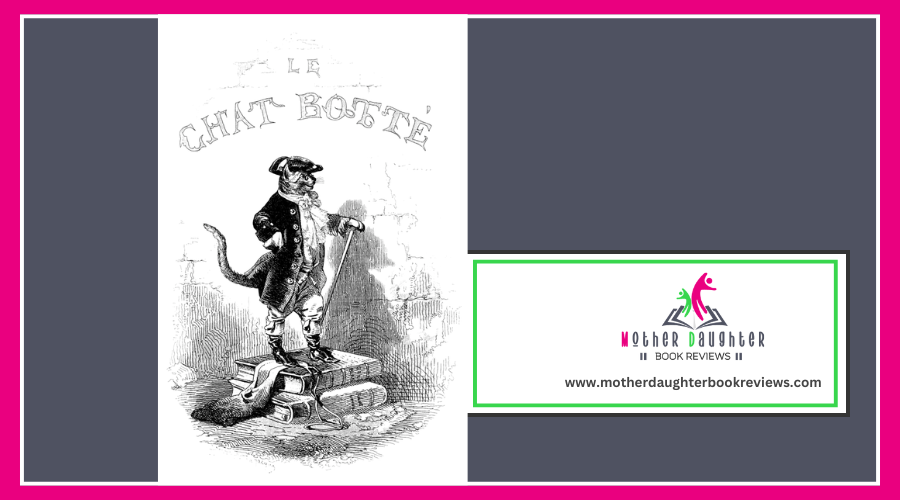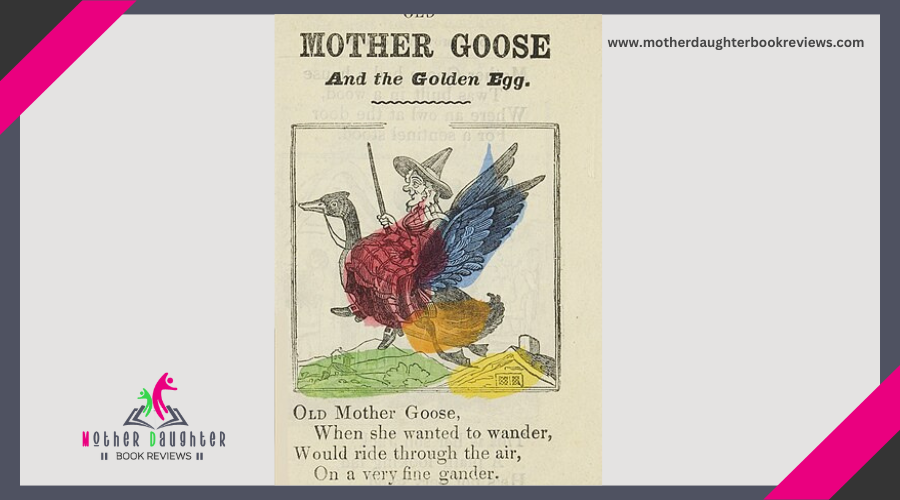Heroic Tales from The Song of Roland
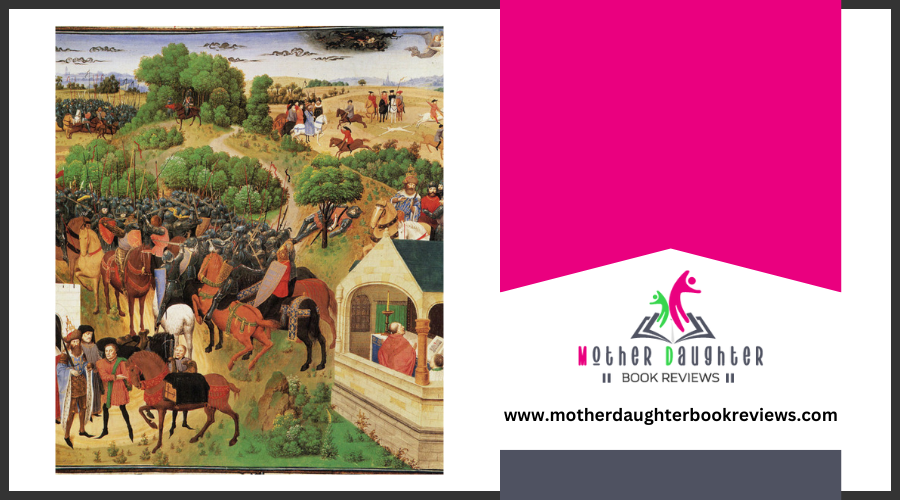
In "The Song of Roland," you're swept into a tale where bravery and honor shine through Roland's fearless leadership and unyielding spirit. You'll see him leading Charlemagne's rearguard against overwhelming odds, refusing to call for reinforcements to showcase his steadfast courage. The chivalric code drives Roland to protect the weak and uphold justice, even at great personal cost.
His ultimate sacrifice at the Battle of Roncevaux Pass epitomizes medieval valor, with his loyalty to Charlemagne and commitment to duty standing in stark contrast to betrayal. This epic encapsulates timeless virtues, offering much more about heroism and sacrifice.
Roland's Heroic Deeds
? In "The Song of Roland," you'll find that Roland's heroic deeds stand out clearly. As Charlemagne's most trusted paladin, Roland embodies bravery through his fearless leadership in the face of overwhelming odds. You see his valor when he leads the rearguard of Charlemagne's army, ensuring the safe retreat of the main force despite being vastly outnumbered.
Roland's refusal to blow his oliphant horn to call for reinforcements, even when urged by Oliver, underscores his steadfast courage and determination. He believes in fighting honorably, preferring to face death rather than seek help prematurely. This act might seem stubborn, but it highlights his commitment to valor.
Another striking deed is his final stand at the Battle of Roncevaux Pass. Despite knowing the battle is lost, Roland continues to fight, showcasing his unyielding spirit. Even as he lays dying, he attempts to destroy his sword, Durendal, to prevent it from falling into enemy hands. His last moments are filled with thoughts of loyalty to Charlemagne and God, solidifying his legacy as an unwavering hero.
The Chivalric Code
Rooted in medieval ideals, the chivalric code frames the actions of knights like Roland, guiding their behavior both on and off the battlefield. This code isn't just a set of rules; it's a way of life that demands courage, loyalty, and honor. You see it in how Roland fights with unwavering bravery and remains steadfastly loyal to Charlemagne. The chivalric code also emphasizes protecting the weak and upholding justice, which Roland demonstrates through his selfless actions and unwavering commitment to his comrades.
Imagine the vivid scenes painted by this code:
- Gleaming armor catching the sunlight as knights ride into battle.
- Swords clashing with a resonant ring, embodying the fight for justice.
- Banners fluttering in the wind, symbols of loyalty and honor.
- Knights kneeling before their lords, pledging their unbreakable allegiance.
- Tender moments of mercy, where the strong protect the vulnerable.
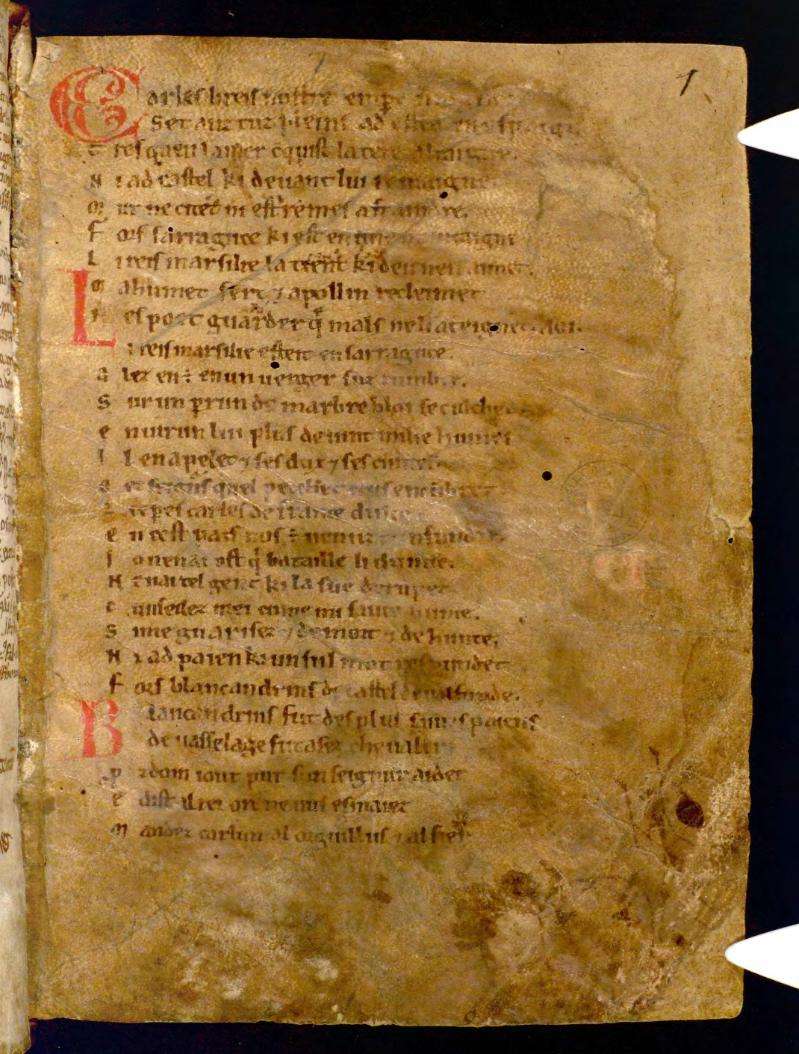
Sacrifice at Roncevaux
The tragic scene at Roncevaux Pass is where Roland's ultimate sacrifice unfolds, embodying the very essence of the chivalric code he lives by. As you explore this epic moment, you'll witness Roland's unwavering bravery and commitment to his king and comrades. Surrounded by overwhelming Saracen forces, Roland's decision to not immediately blow his oliphant horn for reinforcements speaks volumes about his valor and sense of duty. He believes his men can hold the line, showcasing his trust and confidence in their collective strength.
As the battle intensifies, you see Roland fighting fiercely, determined to defend his rear guard to the last breath. His refusal to retreat or surrender demonstrates his steadfastness, even when it becomes clear that help is desperately needed. Eventually, Roland's pride and sense of honor compel him to sound the oliphant, but it's too late. The delay costs him and his men their lives, but it also immortalizes his heroism.
In his final moments, Roland attempts to break his sword, Durendal, to prevent it from falling into enemy hands. His sacrifice at Roncevaux Pass becomes a poignant reminder of the price of honor and the true essence of bravery.
Loyalty and Duty
Roland's sacrifice at Roncevaux Pass sets the stage for examining the themes of loyalty and duty that permeate "The Song of Roland." His unwavering commitment to his king, Charlemagne, and his fellow knights serves as a powerful example of the medieval chivalric values. You see how Roland's sense of duty drives every action, even when faced with overwhelming odds. His loyalty isn't just to his comrades but also to the ideals they represent.
As you explore deeper into the epic, you'll notice:
- Charlemagne's unwavering leadership: He epitomizes the duty-bound ruler, always putting his kingdom and people at the forefront.
- Oliver's steadfast friendship: Despite knowing the dire consequences, he stands by Roland, showing that loyalty extends beyond mere obligation.
- The soldiers' collective courage: Even the lesser-known knights display an unyielding sense of duty, fighting valiantly to protect their homeland.
- Ganelon's betrayal: His treachery highlights the devastating impact of failing one's duty, contrasting sharply with Roland's loyalty.
- The somber aftermath: The narrative underscores the price of loyalty and the heavy burden of duty, leaving you to ponder the true cost of such virtues.
These elements vividly illustrate how loyalty and duty are interwoven, forming the backbone of Roland's world.
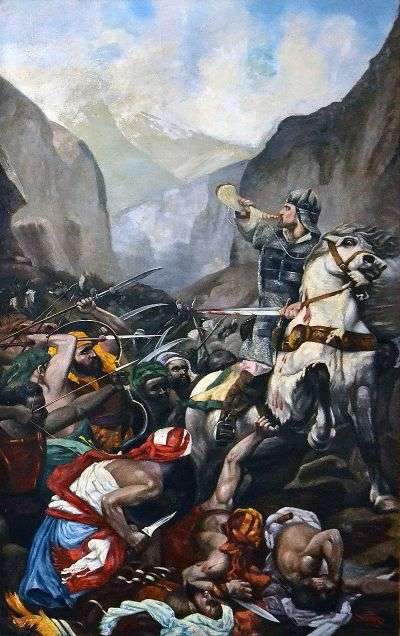
Wolfgang von Bibra creator QS:P170,Q124313050 I, Carl von Bibra, took the photograph. The painting, located at Burg Brennhausen, was by Wolfgang von Bibra (1862 – 1922) based on an etching by "A Closs" [ Adolf (Georg) Closs (1840 -1894) or possibly his son Gustav Adolf Carl Closs (1864 - 1938)] who based his etching on a painting by Louis Felix Guesnet (1843 - 1907), BattleofRoncevauxWvBibra, CC BY-SA 4.0</ a>
Wrapping Up
Amidst the echoes of clashing swords and heroic deeds, the legacy of Roland reverberates through time, capturing the essence of medieval valor and sacrifice. As you explore the tale of the Song of Roland, you can't help but be inspired by his unwavering bravery and the profound impact he left on chivalric ideals. His story isn't just a relic of the past; it's a guiding light that illuminates the virtues of courage, loyalty, and honor.
When you think about Roland, you're reminded of how one individual's actions can resonate through history. The narrative of his final stand at the Battle of Roncevaux Pass encapsulates the spirit of selflessness and duty. By blowing his oliphant, Roland's cry for help symbolizes a call to arms for future generations to uphold justice and protect the weak.
In modern times, Roland's legacy continues to influence literature, art, and even military traditions. You see echoes of his heroism in diverse cultural depictions, reminding you that true bravery transcends time. By embracing Roland's legacy, you're encouraged to embody these timeless virtues in your own life, fostering a world where honor and bravery are celebrated.


